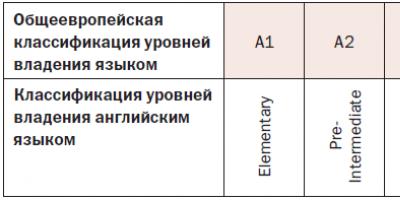Part one
Like all girls, Maria, born in a small town in a Brazilian province, dreams of love, marriage and children. However, she is unlucky in love. All romances with boys she likes end in failure. Each time Maria behaves incorrectly and misses her chance. She allows herself to dream about children and a home, but not about love.
Part two
At nineteen years old, Maria perfectly knows how to use her beauty. She has already finished school and works as a saleswoman in a fabric store, whose owner is in love with her. In two years
Work Maria collects enough money to go for a week to the city of her dreams - Rio de Janeiro. The girl settles into a “third-rate hotel” in Copacabana. On the very first day she meets the rich Mr. Roger from Switzerland on the beach. He turns out to be a Swiss impresario who needs beautiful Brazilian women to perform in a cabaret. Maria agrees to sign the contract and go to Switzerland. She doesn't want to miss the chance, like she's done so many times before.
Before leaving, Maria wants to visit home. Roger is afraid that the girl will run away and accompanies her. The girl’s parents understand that nothing can be changed,
And they release their daughter. The owner of the fabric store confesses his love to Maria. He wants to marry her and is ready to wait. Maria is happy. Now she chooses a career as a samba dancer, hoping to become a star, but a loving merchant remains in store, and Maria has a place to return to.
In Switzerland, Roger becomes cold and distant. The Brazilian woman who works for him explains to Maria that she cannot count on the money promised to her under the contract. To earn a return ticket and cover the costs of “board and shelter,” Maria will have to work for a whole year. The marriage of dancers causes a significant blow to Roger's wallet, so the girls are forbidden to communicate with clients. Maria decides not to give up, earn money, “get to know a foreign country and return home a winner.”
Maria lives in a small room without a TV, hardly goes out and cannot call home - calls to Brazil are too expensive. Gradually she becomes depressed.
If love changes a person quickly, then despair changes even faster.
The rest of the dancers think only about marriage. Maria decides to be different and goes to day courses French, where he meets a young Arab and begins an affair with him. Three weeks later, she skips a work evening. Roger fires Maria, but she threatens to sue, and he has to pay the girl a substantial penalty.
Now Maria has money for a ticket, but she is in no hurry to return home. It seems to the girl that she did not take advantage of the chance given to her.
She decides to become a fashion model and sends her photographs to modeling agencies. One of the agencies organizes dinner for Maria with a rich Arab. He invites the girl to spend the night with him. Maria remembers all the opportunities she had not used, agrees and receives a thousand francs. A new source of income opens up for her. The girl does not want to return home without fame and money and marry the owner of a fabric store. She decides to take a risk again.
Maria chooses an establishment under the sign of “Copacabana”, which turns out to be one of the most expensive and respectable. The owner introduces Maria to local rules and traditions: no drugs or alcohol, and the money – 350 francs per client – is up front.
Maria becomes a professional prostitute. She considers herself the master of her destiny. Contacts with clients do not bring her sexual pleasure. She treats her craft as regular work, and cannot “explain to herself convincingly why she does what she does.”
Part three
Maria calculates that “pure sex” lasts eleven minutes.
All women are sure that a man does not need anything other than these eleven minutes of pure sex, and for them he shells out a lot of money. But this is not so: a man, in essence, is no different from a woman: he also needs to meet someone and find the meaning of life.
The girl believes that our civilization has gone “somewhere in the wrong direction,” and the problem is not the ozone hole or the destruction of forests, but these eleven minutes.
However, the girl does not seek to save humanity, but to replenish her bank account, in which she succeeds. Maria firmly adheres to the main rule - not to fall in love. She sets a departure date. Now she has enough money in her account to buy a farm in Brazil. One day, while walking, Maria enters a small bar. There she is stopped by a long-haired artist of about thirty with the intention of painting a portrait of a girl. The waitress whispers to Maria that he is very famous. The artist Ralph Hart has been to Copacabana and recognizes Maria, but this does not scare him away - he sees in the girl’s eyes the light inherent in her alone.
Ralph Hart has been married twice, travels a lot, makes a lot of money and thinks sex is incredibly boring. He asks Maria to teach him to love, but she does not want to love. The girl refuses him and gradually calms down, but three days later the artist appears in Copacabana, and Maria meekly accepts this gift of fate. Ralph takes her to his place for the whole night. That evening there is no intimacy between them - they are getting used to each other.
Part four
The freedom of Mary’s love “ consisted in having nothing to wait for, nothing to ask for,” but the girl understood that someday Ralph would realize that “she is just a prostitute, and he is famous artist”, and turns away from her.
Maria continues to work. The owner of the establishment tells her that Ralph is a “special client” of his establishment. One evening he assigns Maria another “special client,” a handsome, black-haired Englishman. He pays the girl a thousand francs and takes her to the hotel. This worries Maria. She refuses to stay with the Englishman all night, but she doesn’t want to leave without finding out what a “special client” is. The Englishman turns out to be a sadomasochist, but that evening he only explains to Maria that pain can turn “into jubilation, into a feeling of fullness of life, into bliss.”
People do not dare to look deep into their souls and therefore will never know where the desire to release a wild beast of prey comes from.
Then Maria meets with Ralph. They indulge in fantasies by the fireplace, but intimacy does not happen again - the girl wants to prepare her lover for sex. A few days later she meets Terence and discovers a new side of herself. She enjoys being submissive and feeling pain. For the first time in her career, Maria reaches orgasm with a client.
After this night, Maria believes that she has “found herself” and dreams of going even further with the Englishman. She talks to the artist about pain and pleasure. It turns out Hart tried that too. He takes Maria late at night to a public garden, makes her undress and walk barefoot on the prickly gravel for a long time. Maria wounds her legs until they bleed, becomes very cold and almost loses consciousness. So Ralph manages to prove to her that pain can be not only pleasant, but also painful. The test arranged by Ralph instills in Maria a disgust for the prostitute's craft, in which suffering seems like a reward, and money justifies everything.
Part five
Maria buys a ticket to Brazil. Ralph is “the only truly pure thing that happened to her.” But he, like a bird, was created “for free flight,” and she does not want to fetter him.
In the evening, Maria comes to Ralph to say goodbye. They make love. Maria reaches orgasm four times in a row. He asks her not to leave, but she has already made her decision. Maria leaves while Ralph is still sleeping. Until the last moment she hopes that Ralph will catch up with her.
But a miracle doesn't happen. Maria flies to Paris to connect to a transatlantic flight. A familiar voice suddenly calls out to her. This is Ralph with a bouquet of flowers and sparkling eyes. He arrived in Paris before Maria and was waiting for her at the terminal. Maria realizes that she has her whole youth ahead of her and forgets about the farm and the owner of the fabric store.
Eleven minutes
Dedication
This was not the first time I heard these words, but each time I rejoiced at them. However, at that moment I was very confused, because I knew that “Eleven Minutes” was a book talking about a subject that could confuse, shock, and hurt. I walked to the source, got some water, returned, asked where this man lived (it turned out to be in the north of France, on the border with Belgium), and wrote down his name.
This book is dedicated to you, Maurice Gravelin. I have obligations to you, to your wife and granddaughter - but also to myself: I must talk about what worries and occupies me, and not about what everyone would like to hear from me. Some books make us dream, others immerse us in reality, but all of them are imbued with the most important feeling for the author - sincerity.
For I am the first and I am the last I am revered and despised I am a harlot and a saint
I am a wife and a maiden
I am mother and daughter
I am my mother's hands
I am barren, but my children are countless. I am happy in marriage and unmarried. I am the one who gives birth, and the one who will never give birth to offspring. I ease the pains of childbirth. I am the husband and wife. And it was I who gave birth to my husband. I am the mother. my father I am the sister of my husband Worship me forever.
For I am malicious and generous.
Hymn to Isis, discovered at Nag Hammadi, 3rd or 4th century (?) BC. e.
And so, a woman of that city, who was a sinner, having learned that He was reclining in the house of a Pharisee, brought an alabaster vessel of ointment;
And standing behind His feet and weeping, she began to wet His feet with tears and wipe them with the hair of her head, and kissed His feet and anointed them with myrrh.
Seeing this, the Pharisee who invited Him said to himself: if He were a prophet, He would know who and what kind of woman was touching Him, for she was a sinner.
Turning to him, Jesus said: Simon! I have something to tell you. He says: tell me, Teacher.
Jesus said: A certain creditor had two debtors: one owed five hundred dinars, and the other fifty;
But since they did not have anything to pay, he forgave them both. Tell me, which of them will love him more?
Simon answered: I think the one to whom he forgave more. He said to him: you judged correctly.
And turning to the woman, he said to Simon: Do you see this woman? I came to your house, and you did not give me water for my feet; and she wet My feet with her tears and wiped them with the hair of her head.
You didn't give me a kiss; and she, since I came, has not stopped kissing My feet.
Therefore I tell you: her many sins are forgiven because she loved much; and he who is forgiven little loves little.
Once upon a time there lived a prostitute named Maria.
Wait a minute! “Once upon a time” is good for the beginning of a fairy tale, but a story about a prostitute is clearly for adults. How can a book open with such a blatant contradiction? But since each of us has one foot in a fairy tale and the other above the abyss, let’s continue as we started. So: Once upon a time there lived a prostitute named Maria.
Like all prostitutes, she was born pure and immaculate, and while she was growing up, she kept dreaming that she would meet the man of her dreams (he would be handsome, rich and smart), and marry him ( White dress, veil with fleur-de-orange), will give birth to two children (they will grow up and become famous), will live in good home(with sea views). Her father sold from a stall, her mother sewed, and in her hometown, lost in the Brazilian outback, there was only a cinema, a restaurant and a bank - all in singular, - and therefore Maria waited tirelessly: the day would come and a handsome prince would appear without warning, fall in love without memory and take him away to conquer the world.
Well, while the handsome prince was away, all that was left was to dream. She fell in love for the first time when she was eleven years old - on the way from home to school. On the very first day of classes, Maria realized that she had a travel companion: a neighbor boy went to school with her on the same schedule. They never said a word to each other, but she began to notice that what she liked most were those moments when, on a long road - there was a column of dust, the sun was blazing mercilessly, thirst was tormenting - and, exhausted, she kept up with the boy who walks at a brisk pace.
And this went on for several months. And Maria, who could not stand studying and, apart from television, did not recognize any other entertainment - and there was none - mentally adjusted the time so that the day would quickly pass, morning would come and she could go to school, and Saturdays and Sundays would not be an example to my classmates - I completely fell out of love. And since, as you know, time passes more slowly for children than for adults, she was very suffering and angry that these endless days gave her only ten minutes of love and thousands of hours to think about her lover and imagine how wonderful it would be if only they had talked.
And then it happened.
One fine morning the boy came up to her and asked if she had an extra hand. Maria did not answer, pretended to be offended by such a daring outburst, and quickened her pace. But when she saw that he was heading towards her, everything inside her sank: suddenly she realized how much she loved him, how impatiently she was waiting, how she dreamed of taking his hand and, passing the doors of the school, walking further and further along the road until it ends, until it leads to where - people say - there is a big city, and there everything will be exactly as they show on TV - artists, cars, cinema on every corner, and all kinds of pleasures and entertainment there .
She couldn’t concentrate on the lesson all day, tormented that she had behaved so stupidly, but at the same time rejoicing because the boy had finally noticed her, and that he asked for a pen was just an excuse, a reason to start a conversation: after all, when he approached, She noticed that she had her own sticking out of his pocket. And that night - and all the subsequent ones - Maria kept thinking about how she would answer him next time, so as not to make a mistake and start a story that would have no ending.
But there was no next time. Although they continued, as before, to walk to school the same way - Maria sometimes walked ahead, clutching her hand in her right fist, and sometimes lagged behind so that she could look at him from behind with tenderness - but he didn’t say a word to her anymore, so until the end school year she had to love and suffer in silence.
And then the endless holidays dragged on, and then one day she woke up covered in blood, thought that she was dying, and decided to leave this same boy a farewell letter, admit that she had never loved anyone so much in her life, and then run away into the forest so that she could there he was torn to pieces by a werewolf or a headless mule - one of those monsters that kept the surrounding peasants in fear. Only if such a death overtakes her, she thought, will her parents not be killed, because the poor are built that way - troubles fall on them like out of a thin bag, but hope still remains. So let her parents think that some childless rich people took their girl in and that, God willing, someday she will return to Father's house in all its splendor and with a lot of money, but the one she fell in love with (for the first time, but forever) will remember her all his life and reproach himself every morning for not turning to her again.
Year of book publication: 2003
The book “Eleven Minutes” by Paulo Coelho is one of the most scandalous in the author’s work. Numerous reviews about it contain extremely opposing points of view, but many agree on the importance of the problems raised in the work. This is typical of most of the books by Paulo Coelho, which is included in our site. And the popularity of Coelho's "11 minutes" read is the best proof.
Paulo Coelho's book "11 minutes" summary
 In Paulo Coelho's book "11 Minutes" you can read about the Brazilian prostitute Maria. The girl, believing the beautiful speeches of the recruiter, agreed to go to work as a dancer in Switzerland. But here a completely different job awaited her, and now Maria does not resist it at all. After all, in her opinion, this path will help her understand her own life. After all, sex plays a huge role in the life of every person, but the sexual act itself, according to the observations of the main character of Coelho’s novel “Eleven Minutes,” lasts precisely this period of time. So why does it occupy such a huge role in the life of every person?
In Paulo Coelho's book "11 Minutes" you can read about the Brazilian prostitute Maria. The girl, believing the beautiful speeches of the recruiter, agreed to go to work as a dancer in Switzerland. But here a completely different job awaited her, and now Maria does not resist it at all. After all, in her opinion, this path will help her understand her own life. After all, sex plays a huge role in the life of every person, but the sexual act itself, according to the observations of the main character of Coelho’s novel “Eleven Minutes,” lasts precisely this period of time. So why does it occupy such a huge role in the life of every person?
In order to understand herself and understand the role of sex, Maria in Coelho’s book “11 Minutes” will go through pain, pleasure and even suffering as in. Maria will find her answers to all these questions, but the author, as always, does not impose their truth on the reader. After all, the search for Truth is everyone’s own path, but the value of love cannot be overestimated, and it is this thought that runs through the entire book.
Paulo Coelho's book “11 minutes” on the Top books website
The popularity of Paulo Coelho’s book “11 Minutes” to read is so high that the work took high place in our rating. But this is not all the achievements of the book. Despite the fact that interest in reading “Eleven Minutes” by Paulo Coelho is declining, the book took a high place in the ranking. And given the fairly high interest in this particular book, Coelho will be represented in various ratings on our site for a long time.
Polish director Jerzy Skolimowski is a strange man, and he is interested in strange things. What does a cell phone feel like in the pocket of a passenger on a falling plane? What if each moment in time happens countless times, depending on how many people are living that moment? How do they influence each other? simultaneously things happening? And simultaneously occurring People?
Strange questions. Strange movie. It’s as if a bass note is buzzing somewhere on the horizon of the viewer’s attention: something is going to happen. It's about to happen. Now. Or in eleven minutes.
The deck is shuffled in a whimsical manner a year ago at the 37th MIFF they showed the film “13 Minutes” (received at our box office with the bluntly crude title “Blow Up Hitler”), where the fate of humanity and the coming World War II depended on thirteen minutes. “11 Minutes” shown at the 38th MIFF is not a historical reconstruction at all, but rather a film vignette, fun for the idle mind, and at stake is not Hitler, but much more down-to-earth characters a jealous person, a sexy beauty, a nervous courier, a tempting producer , a sausage seller, laughing nuns, a window cleaner and even deeper a barking dog, a dove flying into the glass, a descending plane, and something in the clouds What is that there in the sky? Or is it a burnt-out pixel on the security camera screen? Everything strives for each other, everything happens at the same time, and this is not Groundhog Day. This is a reality that repeats itself an infinite number of times. The director made sure that we felt the rhythm of these eleven minutes - the clock on the tower is striking, the dog is barking, the plane is roaring as it descends By rewinding time again and again and allowing us to see the same events from different points of view, Skolimowski makes the viewer literally fidget on the edge of the chair and almost shouting: What? What's going to happen now? What's happening?
Don't think. Just watch. Here's a gust of wind. Here is a strange man on the screen saying something about the end of the world (no, this is not a film about the apocalypse). The plane descends lower and lower (no, this is not a film about a plane crash). Here is a schoolgirl spitting in the face of a sausage seller, shouting: “You were quickly released from prison, Mr. Teacher!” and we realize with horror that all these heroes have a past that is not important. The important thing is that they were here and now. All together on the screen space. At eleven minutes, when the sky appears This(no, this is not a film about an alien invasion).
It’s not for nothing that the film opens in mockumentary style. We film each other. We take selfies. We multiply reality, distort it, edit it, stretch it, and these broken pixels stubbornly creep into our reality (no, this is not a film about “The Matrix”). We are to blame for our every step, which goes in circles in the water of reality. It's like an episode of Final Destination where harmless things come together to rip someone's head off, burn him alive, squash him. It's scary to live. That's probably why this corpse is hanging out in a small shop. 'Cause it's hard to stay sane when the sky is hanging This.
The actors are mostly unknown to you (OK, Richard Dormer played in Game of Thrones, but that doesn't matter). This ordinary people in an ordinary city. Just like you and me. Look up from the screen. Look around. What if you, too, are inside someone else's eleven minutes, and the first ten of them have already passed while you are reading this? What do you see - the real world, or one of the billions of surveillance cameras that we turn on when we open our eyes? And what's that in the top right corner of the screen? Scratch with your finger, but it's too late.
Your eleven minutes are up.
Painting by D. Vettriano “The Stranger’s Room”
Very briefly
To understand her own nature, a young Brazilian woman deliberately becomes a prostitute. She endures the tests of pain and pleasure in sex, considering them manifestations of true male love.
Part one
Like all girls, Maria, born in a small town in a Brazilian province, dreams of love, marriage and children. However, she is unlucky in love. All romances with boys she likes end in failure. Each time Maria behaves incorrectly and misses her chance. She allows herself to dream about children and a home, but not about love.
Part two
At nineteen years old, Maria perfectly knows how to use her beauty. She has already graduated from school and works as a saleswoman in a fabric store, whose owner is in love with her. After two years of work, Maria collects enough money to go for a week to the city of her dreams - Rio de Janeiro. The girl settles into a “third-rate hotel” in Copacabana. On the very first day she meets the rich Mr. Roger from Switzerland on the beach. He turns out to be a Swiss impresario who needs beautiful Brazilian women to perform in a cabaret. Maria agrees to sign the contract and go to Switzerland. She doesn't want to miss the chance, like she's done so many times before.
Before leaving, Maria wants to visit home. Roger is afraid that the girl will run away and accompanies her. The girl’s parents understand that nothing can be changed and let their daughter go. The owner of the fabric store confesses his love to Maria. He wants to marry her and is ready to wait. Maria is happy. Now she chooses a career as a samba dancer, hoping to become a star, but there is a merchant in love, and Maria has a place to return to.
In Switzerland, Roger becomes cold and distant. The Brazilian woman who works for him explains to Maria that she cannot count on the money promised to her under the contract. To earn money for a return ticket and cover the costs of “board and shelter,” Maria will have to work for a whole year. The marriage of dancers causes a significant blow to Roger's wallet, so the girls are forbidden to communicate with clients. Maria decides not to give up, earn money, “get to know a foreign country and return home a winner.”
Maria lives in a small room without a TV, hardly goes out and cannot call home - calls to Brazil are too expensive. Gradually she is overcome by despondency.
If love changes a person quickly, then despair changes even faster.
The rest of the dancers think only about marriage. Maria decides to be different and goes to a full-time French language course, where she meets a young Arab man and begins an affair with him. Three weeks later, she skips a work evening. Roger fires Maria, but she threatens to sue, and he has to pay the girl a substantial penalty.
Now Maria has money for a ticket, but she is in no hurry to return home. It seems to the girl that she did not take advantage of the chance given to her.
She decides to become a fashion model and sends her photographs to modeling agencies. One of the agencies organizes dinner for Maria with a rich Arab. He invites the girl to spend the night with him. Maria remembers all the opportunities she had not used, agrees and receives a thousand francs. A new source of income opens up for her. The girl does not want to return home without fame and money and marry the owner of a fabric store. She decides to take a risk again.
Maria chooses an establishment under the Copacabana sign, which turns out to be one of the most expensive and respectable. The owner introduces Maria to local rules and traditions: no drugs or alcohol, and money - 350 francs per client - in advance.
Maria becomes a professional prostitute. She considers herself the master of her destiny. Contacts with clients do not bring her sexual pleasure. She treats her craft like an ordinary job and cannot “explain to herself convincingly why she does what she does.”
Part three
Maria calculates that “pure sex” lasts eleven minutes.
All women are sure that a man does not need anything other than these eleven minutes of pure sex, and for them he shells out a lot of money. But this is not so: a man, in essence, is no different from a woman: he also needs to meet someone and find the meaning of life.
The girl believes that our civilization has gone “somewhere in the wrong direction,” and the problem is not the ozone hole or the destruction of forests, but these eleven minutes.
However, the girl does not seek to save humanity, but to replenish her bank account, in which she succeeds. Maria firmly adheres to the main rule - not to fall in love. She sets a departure date. Now she has enough money in her account to buy a farm in Brazil. One day, while walking, Maria enters a small bar. There she is stopped by a long-haired artist of about thirty with the intention of painting a portrait of a girl. The waitress whispers to Maria that he is very famous. The artist Ralph Hart has been to Copacabana and recognizes Maria, but this does not scare him away - he sees in the girl’s eyes the light inherent in her alone.
Ralph Hart has been married twice, travels a lot, makes a lot of money and thinks sex is incredibly boring. He asks Maria to teach him to love, but she does not want to love. The girl refuses him and gradually calms down, but three days later the artist appears in Copacabana, and Maria meekly accepts this gift of fate. Ralph takes her to his place for the whole night. That evening there is no intimacy between them - they are getting used to each other.
Part four
The freedom of Mary’s love “ consisted in having nothing to wait for, nothing to ask for,” however, the girl understood that someday Ralph would realize that “she is just a prostitute, and he is a famous artist,” and would turn away from her .
Maria continues to work. The owner of the establishment tells her that Ralph is a “special client” of his establishment. One evening he assigns Maria another “special client,” a handsome, black-haired Englishman. He pays the girl a thousand francs and takes her to the hotel. This worries Maria. She refuses to stay with the Englishman all night, but she also doesn’t want to leave without finding out what a “special client” is. The Englishman turns out to be a sadomasochist, but that evening he only explains to Maria that pain can turn “into jubilation, into a feeling of fullness of life, into bliss.”
People do not dare to look deep into their souls and therefore will never know where the desire to release a wild beast of prey comes from.
Then Maria meets with Ralph. They indulge in fantasies by the fireplace, but intimacy does not happen again - the girl wants to prepare her lover for sex. A few days later she meets Terence and discovers a new side of herself. She enjoys being submissive and feeling pain. For the first time in her career, Maria reaches orgasm with a client.
After this night, Maria believes that she has “found herself” and dreams of going even further with the Englishman. She talks to the artist about pain and pleasure. It turns out Hart tried that too. He takes Maria late at night to a public garden, makes her undress and walk barefoot on the prickly gravel for a long time. Maria wounds her legs until they bleed, becomes very cold and almost loses consciousness. So Ralph manages to prove to her that pain can be not only pleasant, but also painful. The test arranged by Ralph inspires Maria with disgust for the prostitute's craft, in which suffering seems like a reward, and money justifies everything.
Part five
Maria buys a ticket to Brazil. Ralph is “the only truly pure thing that happened to her.” But he, like a bird, was created “for free flight,” and she does not want to fetter him.
In the evening, Maria comes to Ralph to say goodbye. They make love. Maria reaches orgasm four times in a row. He asks her not to leave, but she has already made her decision. Maria leaves while Ralph is still sleeping. Until the last moment she hopes that Ralph will catch up with her.
But a miracle doesn't happen. Maria flies to Paris to connect to a transatlantic flight. A familiar voice suddenly calls out to her. This is Ralph with a bouquet of flowers and sparkling eyes. He arrived in Paris before Maria and was waiting for her at the terminal. Maria realizes that she has her entire youth ahead of her and forgets about the farm and the owner of the fabric store.








